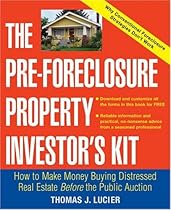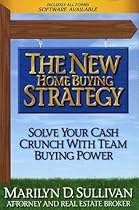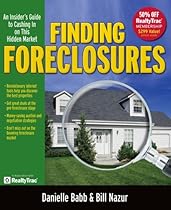You'll probably have to go to homeownership school. You'll have to prove you can really afford a mortgage. You may have to reconsider your location. And you'll have to run a gauntlet of scrutiny. Today's mortgages are a far cry from boom time loans, but they do exist and some lenders have money to burn.
by Broderick Perkins
© 2008 DeadlineNews.Com![]()
Unauthorized use of this story is a copyright violation -- a federal crime
Deadline Newsroom - A new brand of home loan, customized with tighter controls and fewer defects is replacing those old mortgage models that crashed and burned when the economy hit the skids.
Don't expect these new babies to come off the assembly line like those mass-produced subprime rattle traps, but if you stick to the rules of the road, one of these loans could put you in the driver's seat.
Buckle up.
"You have to qualify. You have to prove your income. They have make-sense underwriting," said, Quincy Virgilio, 2009 president of the Santa Clara County Association of Realtors and broker-owner Realty World CA Property Network in San Jose, CA.
FHA-insured mortgages
The new darling of the homebuyer set, Federal Housing Administration-insured mortgage programs have for decades been available especially for low- to moderate-income families who may not meet requirements for conventional loans.
But with new loan limits as high as $625,500 they've become especially attractive in high cost areas. FHA loans are expected to account for 25 percent of the mortgages signed in 2009, according to the National Association of Realtors. Because of previously lower loan limits, FHA loans amounted to less than 4 percent of homes sold from 2003 and 2006.
The new FHA model also comes with low down payments and eased credit requirements.
"They are much more lenient (compared to conforming Fannie Mae and Freddie Mac mortgages) on how they look at credit scores. The score can be in the 600s vs. 700s, said Cheryl O'Connor, a finance expert with O'Connor Consulting in Danville, CA.
FHA features include:
Virgilio says buyers who don't have 20 percent or more down will pay an upfront mortgage insurance fee amounting to as much as 1.75 percent (of the loan) and a monthly mortgage insurance premium that effectively tacks on another 0.5 percent to the interest rate.
"But you can structure your loan with participation from the seller paying closing costs. Not down payment assistance, but closing costs, but in this marketplace the seller is going for that," said Virgillio.
The best rates (typically fixed, rather than adjustable) go to those who have financial reserves, savings or investments amounting to at least two months worth of a PITI (principle, interest, taxes and insurance) mortgage payment.
Likewise, the best deals go to buyers with a 30 to 33 percent debt-to-income ratio when the debt includes housing and all other monthly debt payments.
In addition to FHA home-buying loans, the "Housing and Economic Recovery Act of 2008" created "Hope For Homeowners" which allows troubled mortgage holders to avoid foreclosure by refinancing into a more affordable, FHASecure mortgage, provided Uncle Sam gets a piece of the equity-growth action and provided the existing lender approves.“People used to qualify with stated income. Now there is more documentation. And they aren't just documenting your income, but looking for assets in addition to your income and low debt-to-income ratios and low loan-to-value ratios.”
- Asmaa Egal, mortgage broker, Loan Republic Financial, San Francisco, CA
Membership-required credit unions
Credit unions are also rolling out the red carpet for home buyers.
The typically members-only financial institutions largely survived the credit crunch because, as non-profits, the fundamentals apply. They take in deposits. They make loans based on sound underwriting principles. They charge more on those loans than they pay on deposits.
Without the profit motive, there was no incentive to get involved in the subprime racket, no reason to sell and repackage loans as investments and no need to otherwise venture into untried and untrue investment schemes.
Along with fixed-rate 30-year mortgages at rates often lower than banks they also offer conventional adjustable rate mortgages (ARM) and hybrids all with rates typically lower than conventional lenders (Search "rates," then see "Ratedex").
"Credit unions have a tendency to be more lenient if you have a bank account with a credit union," O'Connor said.
Credit union originations rose a whopping 10.1 percent during the first half of 2008, according to the industry's federal regulator, the National Credit Union Administration (NCUA). Conventional mortgage lender loan originations took a nose dive, falling 17 percent during the same period.
Rural home loans
Don't get your knickers in a knot over the term "rural."
The nation's housing market includes a host of fine country estates -- large and small -- with land and available for a song! What's more, they come with government backed financing.
"Home buyers in the San Jose (and other) area still have one mortgage that is inexpensive and easy to get, but many people don't know about it," says Dan Auld a loan consultant with National Mortgage City.
Loans backed by the United States Department of Agriculture's (USDA) Rural Development Housing and Community Facilities Programs are limited, but you don't have to grow corn or raise chickens.
The loans are for:
USDA Programs include no-money down loans (imagine that), home improvement and rehabilitation loans and grants, construction loans, loans for minorities and true to the work-ethic of rural life, sweat-equity loans that require buyers to help build their own homes.
Money for rural homeownership is available during the greatest economic downturn since the Great Depression because of sound lending practices and isolation -- both geographical and financial -- from the boom-bust markets.
The result has been more mortgage money to lend, not less. The federal ag agency's loan volume tripled in 2008.
Local, state agencies
O'Connor says don't overlook local -- city, county and state -- housing assistance programs that often cater to first-time and or low- to moderate-income home buyers.
More information is available about state housing efforts from the HUD web site.
Local contacts are available through the National Association of Housing and Redevelopment Officials.
Also see land consultant Curtis Seltzer's "How To Be A Dirt-Smart Buyer Of Country Property" (Infinity Publishing, $34.95).
© 2008 DeadlineNews.Com
Advertise on DeadlineNews.Com
Shop DeadlineNews.Com
Get news that really hits home for your Web site or blog from DeadlineNews.Com.
Broderick Perkins, an award-winning consumer journalist, parlayed 30 years of old-school journalism into a digital real estate news service, the San Jose, CA-based DeadlineNews Group -- DeadlineNews.Com, a real estate news and consulting service and Web site and the Deadline Newsroom, DeadlineNews.Com's news back shop. Perkins is also a National Real Estate Examiner. All the news that really hits home from three locations -- that's location, location, location!
DeadlineNews.Com's Editorial Content Is Intellectual Property • Unauthorized Use Is A Federal Crime
Read more!












